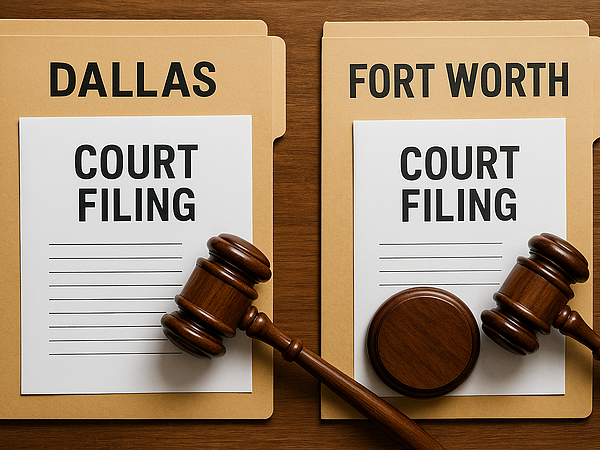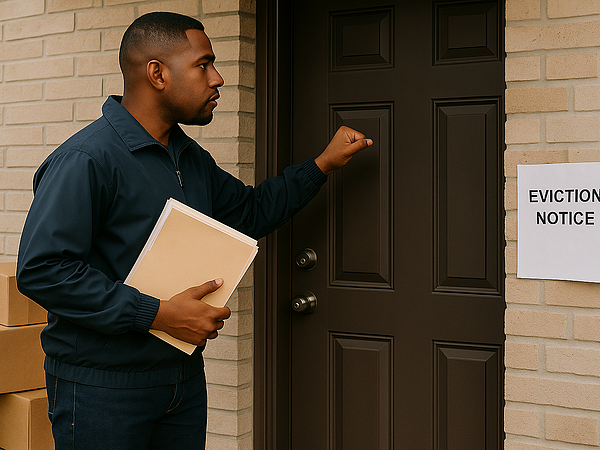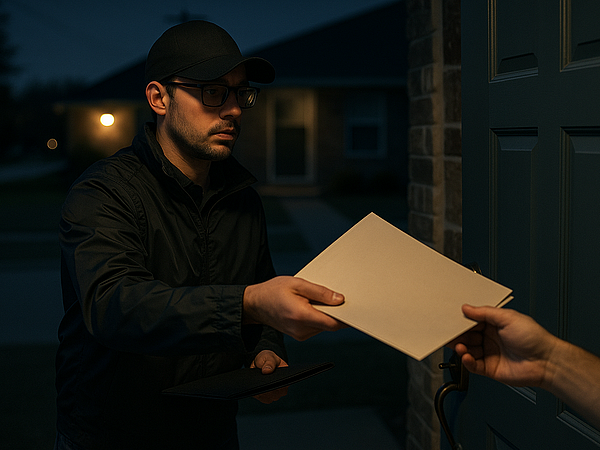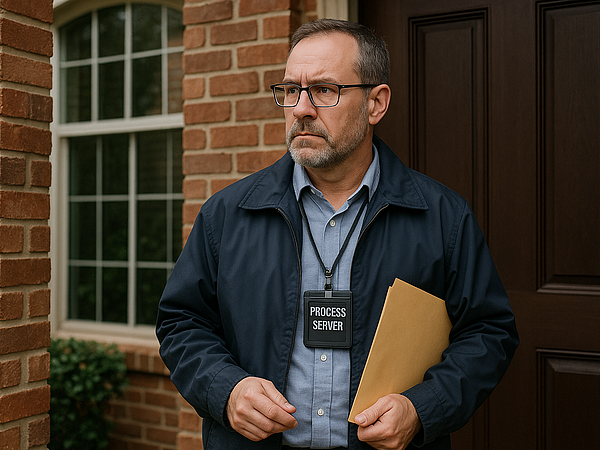By using our website, you agree to the use of cookies as described in our Cookie Policy
Do Process Servers in Dallas Need a License?
Most people assume anyone can knock on a door and hand over legal papers. That's not how Texas works. The state doesn't mess around when it comes to who can serve documents, and Dallas follows those rules to the letter. If you're hiring someone to deliver a citation, subpoena, or restraining order, you'd better make sure they're doing it legally. Otherwise, your case could stall before it even starts.
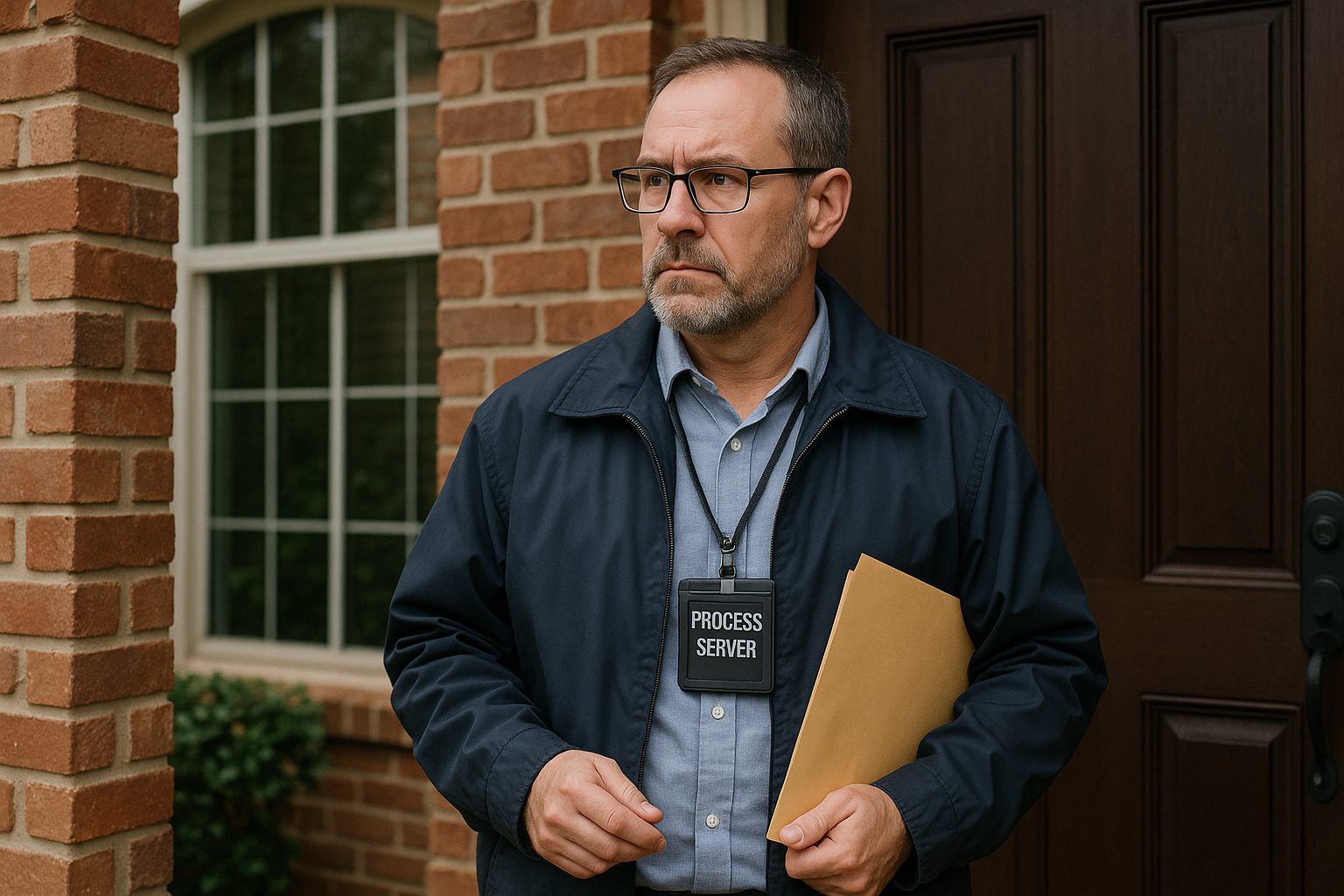
Texas doesn't require a statewide license for process servers the way some states do. But that doesn't mean it's a free-for-all. There are strict rules about who qualifies, what they can do, and how they prove they did it right. And if someone skips those steps, the court won't accept the service — which means you're back at square one, wasting time and money.
Texas Licensing Rules
Texas law doesn't mandate a centralized license for process servers, but it does spell out exactly who can serve legal documents. You can't just hire your cousin or a random delivery driver. The Texas Rules of Civil Procedure lay out the qualifications, and they're not suggestions. A valid process server in Texas must be at least 18 years old and not a party to the case. That's the baseline. Beyond that, most professionals register with the county or work under a licensed private investigator if they want to handle skip tracing or more complex service attempts.
In Dallas, many process servers choose to register with the county clerk or operate under a private investigator's license for added credibility. It's not legally required for basic service, but it shows they're serious about the work. Courts and attorneys tend to trust registered servers more, especially when service gets contested. If you're looking for someone who knows the ropes, you want a team that understands legal requirements for process serving in Texas inside and out.
Local Dallas Requirements
Dallas doesn't add extra licensing layers on top of state law, but local courts do expect process servers to know their stuff. That means understanding venue rules, proper service methods, and how to document everything. A server who doesn't know the difference between substituted service and personal service is going to cause problems. And if they don't file the return of service correctly, the court might toss it out.
Dallas courts also expect servers to follow strict timelines. If you're serving someone in a gated community or a business with security, you can't just give up after one try. You need to make multiple attempts, document each one, and prove you did everything possible to reach the person. That's where experience matters. A professional who's been doing this for years knows how to navigate those situations without cutting corners. If you're dealing with tricky service scenarios, check out how process servers handle gated communities in Dallas Fort Worth for insight into what works.
- Servers must be at least 18 and not involved in the case
- Registration with the county clerk is optional but recommended
- Private investigator licenses allow for skip tracing and advanced service methods
- All service attempts must be documented with dates, times, and locations
- Returns of service must be filed with the court and include an affidavit
These aren't just bureaucratic hoops. They're safeguards that protect due process. If a defendant claims they were never served, the court will look at the return of service to verify what happened. If the paperwork is sloppy or incomplete, the judge might side with the defendant — and your case takes a hit. That's why working with professionals who understand what makes a service attempt valid in Texas courts is critical.
Penalties for Unlicensed Service
Using an unqualified process server doesn't just delay your case. It can invalidate the entire service, which means the court treats it like it never happened. If the person you're suing shows up and argues they weren't properly served, the judge will review the credentials of the server. If that person didn't meet Texas requirements, the service gets thrown out. You'll have to start over, pay for service again, and possibly miss deadlines that could hurt your case.
In some situations, improper service can lead to bigger problems. If a default judgment gets entered because someone claims they were never served, and it turns out the server wasn't qualified, that judgment could be overturned. That's a nightmare for plaintiffs who thought they'd already won. And if the server lied about their qualifications or falsified a return of service, they could face criminal charges. Texas takes fraud seriously, especially when it involves the courts.
Who Enforces Licensing
The courts enforce service rules on a case-by-case basis. If a defendant challenges service, the judge will review the return and decide whether it was valid. County clerks also play a role by maintaining registries of process servers, though registration isn't mandatory statewide. The Texas Department of Public Safety oversees private investigator licenses, which some servers use to expand their scope of work. And if someone commits fraud or violates the rules, the district attorney's office can step in.
Renewal and Compliance
If a process server operates under a private investigator license, they'll need to renew it every two years with the state. That includes continuing education and background checks. For servers who don't hold a PI license, there's no formal renewal process — but they still need to stay current on Texas Rules of Civil Procedure and any updates to service laws. Courts don't care if you didn't know the rules changed. Ignorance isn't a defense when your service gets challenged.
Compliance also means keeping clean records. Every service attempt should be logged with enough detail to hold up in court. That includes the date, time, location, description of the person served, and any obstacles encountered. If you're working with a professional team, they'll handle all of that automatically. If you're trying to do it yourself or hiring someone cheap, you're gambling with your case. For attorneys who need reliable service, understanding what attorneys should know about rush process service in DFW can make a big difference in tight timelines.
Training Options
Texas doesn't require formal training to become a process server, but most professionals get it anyway. Some take courses through private investigator schools or legal service associations. Others learn on the job by working with experienced servers. Either way, the best servers know more than just how to hand someone a piece of paper. They understand courtroom procedures, how to handle hostile recipients, and how to stay safe in unpredictable situations. If you're hiring a server, ask about their training and experience. The cheapest option is rarely the best one.
- Private investigator programs often include process service training
- Legal service associations offer workshops and certification courses
- On-the-job training with experienced servers builds practical skills
- Continuing education keeps servers updated on rule changes
- Safety training helps servers handle confrontational situations
Training also covers the nuances of different service types. Serving divorce papers isn't the same as serving a subpoena. Serving a business requires different steps than serving an individual at home. And serving someone who's actively avoiding service takes skill and persistence. A trained professional knows how to adapt to each situation without violating the rules. If you're dealing with a difficult service scenario, you might also need skip tracing to find people in DFW before service can even happen.
Get Help with Process Service in Dallas
Hiring the right process server isn't just about checking a box. It's about protecting your case and making sure every step holds up under scrutiny. North TX Civil Process has been handling service in Dallas for years, and we know exactly what courts expect. Whether you need standard service, rush delivery, or help tracking down someone who's hard to find, we've got the experience and the documentation to back it up. Call 682-409-4415 or order process service now to get started.
‹ Back



